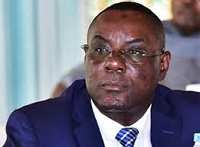
Religious and cultural leaders must lead on the path of strengthening and guiding the family
COMMENT | JOSHUA KITAKULE | In today’s rapidly changing world, the traditional African extended family structure stands as a beacon of resilience and strength amidst modern challenges. While divorce rates rise and parenting struggles intensify, the values ingrained in the African extended family system remain steadfast.
Faithfulness, hard work, communal parenting, and unity are not just ideals but lived realities within African families. Despite the pressures of urban life and economic demands, these values persist, offering a foundation of stability and support.
However, the onslaught of social vices threatens to erode these cherished principles. It is reflected in infidelity and material greed; seen in the way children dispossess their siblings or even parents, and heirs sell land possessing burial grounds of their parents and end up in courts of law over mismanagement of their late parent’s estate.
At the same time African families are grappling with internal conflicts that strain the very fabric of their existence. In unfaithfulness even in the smallest matters, such as a man not revealing the exact amount of money he earns to his wife and vice versa, have worked to weaken the families today. Recently there was a media frenzy about some prominent men doing DNA tests on their children after becoming suspicious of their wives. The results of DNA have left some families very weak.
Fathers have children born outside wedlock they are not declaring but only to be brought or revealed at their funeral. Domestic violence remains common. Much as the 2023 Police Annual Crime Report indicated that there was a reduction of cases of domestic violence recorded, at 14,846 compared to 17,698 reported cases in 2022 and 17,533 in 2021; those cases are still high given that some are unreported to police. The triggers of all these vices are many and religious and cultural leaders need to chart ways of combating them.
For centuries, many African religious and cultural traditions have presented the family a sanctuary of love, forgiveness, and support. But due to influences of modernity these values are on a downward trend. This calls for concerted efforts to protect and defend the institution of family which is an integral, cardinal and basic unit for society and nation building. If well nurtured, the family is the centre of socio-economic transformation.
The understanding that God blesses the family is central to the traditional African extended family relationships. It is summarised in the Ubuntu philosophy that affirms “I am because we are, and we are because I am”. This spirit of Ubuntu is the foundation of traditional African values which all religious institutions cherish and uphold today.
It’s inherently understood that God intends that family members assist each other in personal growth and character development. Parents with support of cultural and religious leaders, cultivate family harmony, while raising children with good character and civic virtue.
One may wonder how, then, do we address these and more challenges facing the family today? What kind of families do we want to rise? What challenges do you face as a family? What threats do African families face in the 21st century?
It is therefore critical that religious and cultural leaders take the lead on the path of strengthening and guiding the family. Families can be a centre for driving transformation. Only when families are strong, stable, peaceful, united and thriving; will we see transformation in our communities and the country as a whole.
Drawing from the inspiration of our inter-religious peace initiatives, we have organised a Family Festival in which we will reaffirm that all people, regardless of tribe, religion, and nationality, belong to the one human family, and are endowed by the Creator God with freedom and fundamental rights. The festival will explore best practices in interfaith peacebuilding and highlight the power of deep-rooted African traditions of family and spiritual values to advance freedom and a vision of a twenty-first century African renaissance.
This festival seeks to inspire all people to uplift our shared origin and spiritual heritage in our common humanity. Through this we aim to advance a deep-rooted understanding of traditional African values of family and faith as a means of mitigating threats to the family, youth radicalisation and extremism, and other social ills that limit progress on the continent.
Yet, amidst these trials, there remains hope. Religious and cultural leaders play a pivotal role in guiding and strengthening families, leveraging their influence to uphold traditional values and foster unity. Initiatives like the Family Festival serve as rallying points, reaffirming the importance of familial bonds and shared spiritual heritage.
The Inter-Religious Council of Uganda, therefore, stands firm in its commitment to defend the sanctity of family, freedom, and cultural values, recognising the profound impact they have on our collective well-being. Together, we can safeguard the legacy of the African extended family for generations to come.
****

Joshua Kitakule is Secretary General, Inter-Religious Council of Uganda
 The Independent Uganda: You get the Truth we Pay the Price
The Independent Uganda: You get the Truth we Pay the Price



